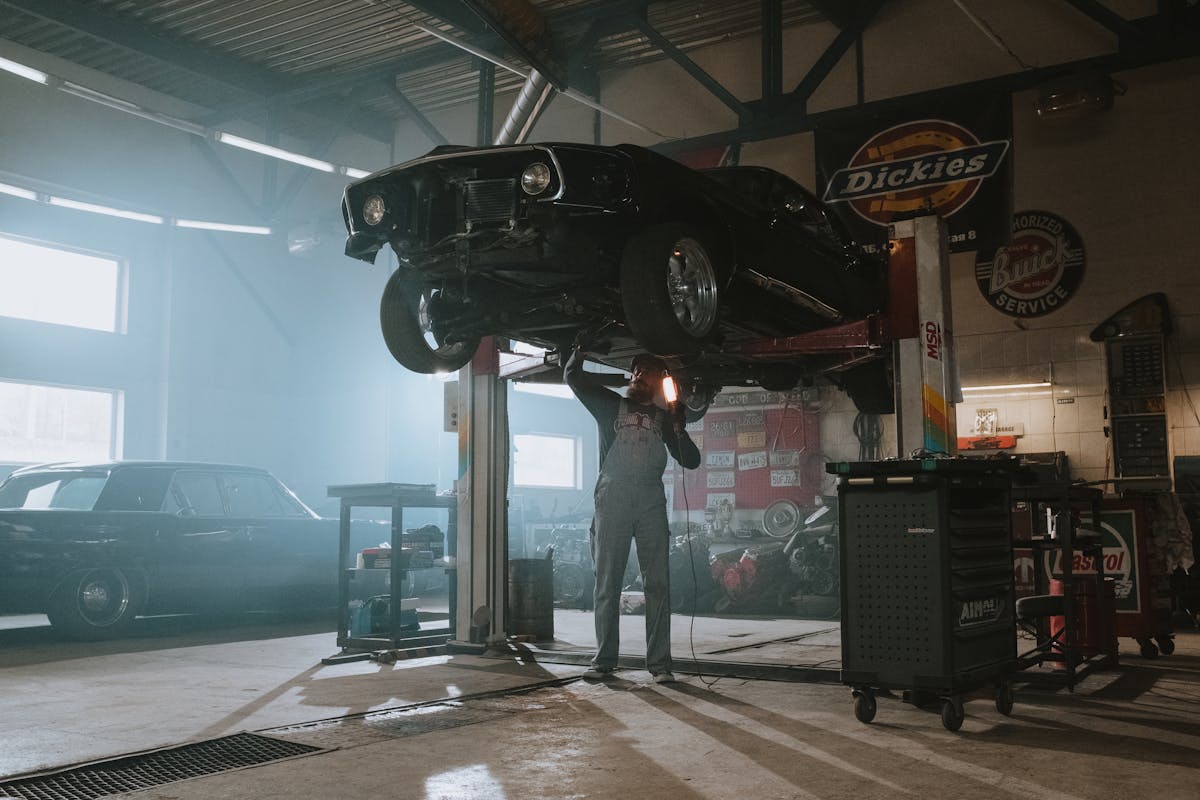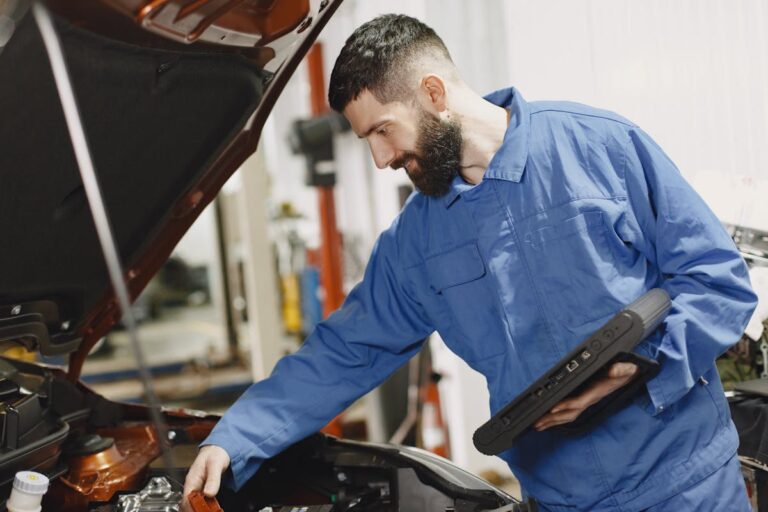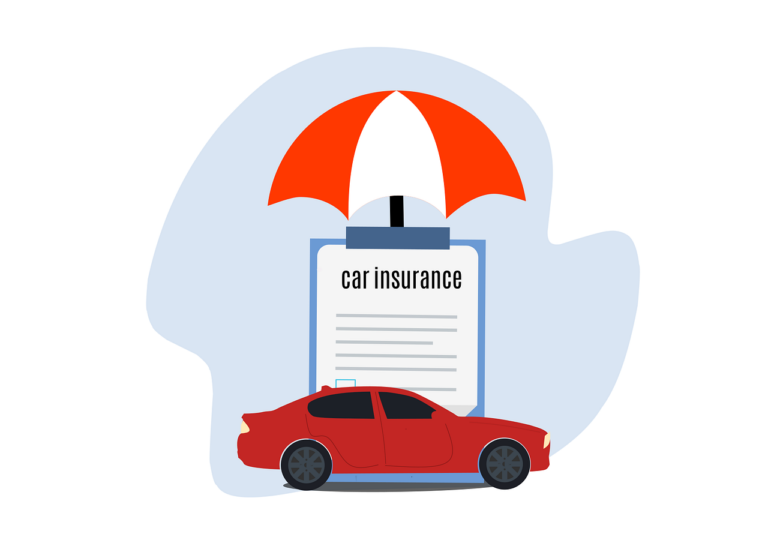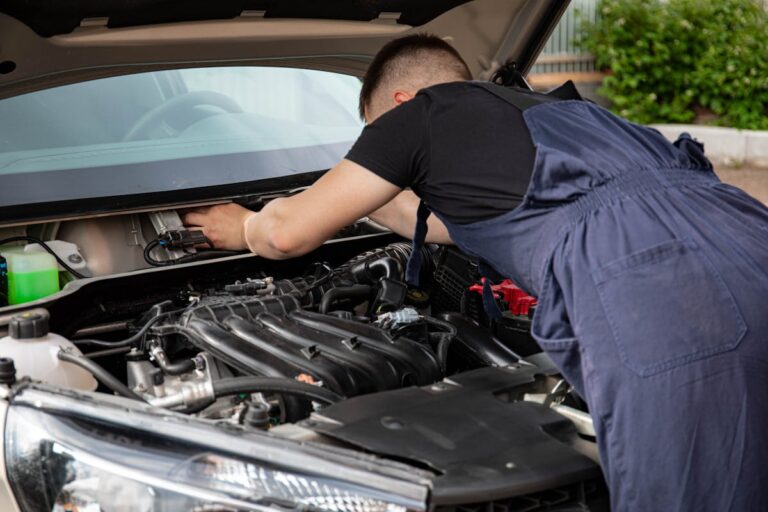Why Is It Important to Have Your Vehicle Inspected
Regular vehicle inspections serve as a preventative measure to guarantee the longevity, performance, and safety of your car. These checks not only help in identifying potential mechanical issues before they become serious, but they also guarantee your vehicle aligns with emission standards, enhancing environmental sustainability. In addition, catching these problems early can offer cost-saving advantages and maintain the value of your vehicle. In the next sections, we will further explore the essentiality of vehicle inspections and how they contribute to a safer and efficient driving experience.
Understanding Vehicle Inspection Basics
Delving into the domain of vehicle inspection basics, it’s crucial to understand its core rationale and process. Vehicle inspection is a systematic evaluation of vehicles, focusing mainly on safety and roadworthiness aspects. Its foundation lies in the fact that vehicles, like other mechanical systems, are prone to wear and tear, which may compromise their functionality and safety.
Two fundamental concepts in vehicle inspection are inspection frequency and the inspection checklist. Inspection frequency refers to how often a vehicle should undergo inspection. Although this can vary depending on local regulations and the vehicle’s age and usage, a general guideline is to have your vehicle inspected annually. An inspection checklist, on the other hand, is a thorough list of items to be checked during the inspection. It typically includes, but is not limited to, the vehicle’s brake system, tire condition, lights, windshield wipers, belts, hoses, and exhaust system.
Understanding these basics can help vehicle owners appreciate the importance of regular inspections, and guarantee their vehicles meet the necessary safety and emission standards. This, in turn, helps maintain the vehicle’s ideal performance and longevity.
Ensuring Road Safety
A direct outcome of regular vehicle inspections, as outlined in the previous section, is the assurance of road safety. Inspections can identify potential problems before they escalate, reducing the likelihood of vehicular malfunctions that could lead to accidents.
Driver awareness is greatly improved with regular inspections. For instance, understanding the state of your brakes, tyres, and lights can inform your driving decisions. Knowing the limitations of your vehicle aids in making safer choices, such as maintaining appropriate speeds and distances from other vehicles.
Furthermore, community safety is enhanced when all vehicles on the road have been properly inspected and deemed roadworthy. This cleanliness of the fleet reduces the likelihood of accidents caused by vehicle malfunctions, protecting pedestrians, cyclists, and other vulnerable road users.
In addition, proper vehicle inspections can identify and rectify harmful emissions, contributing to a healthier environment. This aspect of inspection, while not directly related to immediate road safety, has long-term impacts on the community’s health and wellbeing.
Maintaining Vehicle Performance
Vehicle performance, a key aspect of its overall functionality, is greatly influenced by regular inspections. Inspections provide an opportunity to assess important components of the vehicle, particularly those directly impacting its performance.
- Engine Tuning: Regular inspections often involve engine tuning, which is the process of modifying and adjusting the internal combustion engine to achieve ideal performance levels. This can considerably enhance your vehicle’s power output and efficiency.
- Performance Upgrades: Inspections can identify potential areas for performance upgrades. These could include modifications to the vehicle’s intake or exhaust system, or even upgrades to the vehicle’s suspension.
- Early Detection of Problems: Inspections can detect minor issues before they escalate into major problems. This allows for timely repairs, thereby avoiding a potential decline in vehicle performance.
- Maintaining Fuel Efficiency: Regular inspections can help maintain or improve your vehicle’s fuel efficiency by confirming that the engine and other components are working efficiently.
Regular vehicle inspections not only guarantee safety but also contribute to maintaining the vehicle’s performance. It’s a preventative measure that can save you from facing major repairs and performance issues in the long run.
Extending Your Vehicle’s Lifespan
Proper vehicle care and maintenance, including routine inspections, play an essential role in extending the lifespan of your vehicle. Vehicle longevity is not a product of chance; rather, it is the result of diligent care, consistent routine checkups, and preemptive servicing.
These routine checkups include regular oil changes, tire rotations, brake inspections, and other preventive measures, all of which contribute considerably to vehicle longevity. Over time, wear and tear cause degradation of vehicle parts, which if left unchecked, could lead to severe damage and ultimately shorten the vehicle’s lifespan.
Routine inspections help identify these issues early, potentially averting irreversible damage. For instance, regular oil changes guarantee the engine runs smoothly, reducing wear on engine components and extending its life. Similarly, tire rotations and alignments minimize tire wear and improve the vehicle’s handling, further contributing to its longevity.
Moreover, regular inspections of the vehicle’s brake system are vital. Neglecting this aspect can result in catastrophic failures, posing safety risks and potentially causing considerable damage to the vehicle. Hence, to promote vehicle longevity, it is imperative to maintain a regular inspection schedule, which allows for timely detection and rectification of potential issues.

Cost Savings From Regular Inspections
Undeniably, regular vehicle inspections can result in substantial cost savings by mitigating the risk of costly repairs and improving fuel efficiency. Early detection of potential problems can preclude the occurrence of more serious and expensive issues in the future. Additionally, maintaining ideal engine performance through routine inspections can greatly improve fuel economy, thereby reducing expenditure on fuel.
Preventing Expensive Repairs
We often overlook the financial benefits of regular vehicle inspections, focusing instead on the immediate cost. However, consistent evaluations can prevent expensive repairs, curbing long-term expenditure. By addressing potential problems early, vehicle owners can avoid the high costs associated with repairing or replacing major car components.
- Brake System and Tire Wear: Regular inspections can identify brake system issues and unusual tire wear patterns before they escalate into larger problems. Early detection can save on expensive brake repairs and tire replacements.
- Engine Diagnostics and Fluid Levels: Routine checks can uncover engine issues early on, preventing costly engine repairs. Inspections of fluid levels guarantee your vehicle’s systems run smoothly, averting potential damages.
- Electrical Components and Battery Condition: Regular inspections can identify failing electrical components, avoiding expensive replacements. Battery condition checks are critical to prevent sudden failures and costly towing services.
- Suspension Health, Exhaust System, Safety Features, and Alignment Checks: Inspections can detect issues with suspension health, exhaust system, safety features, and alignment. Timely corrections can prevent more serious damages and enhance the vehicle’s longevity.
Enhancing Fuel Efficiency
Not only does regular vehicle inspection help prevent expensive repairs, but it also plays an important role in enhancing fuel efficiency. The fuel system, for instance, should be regularly inspected to verify it is free from leaks and is delivering the right fuel-air mix.
Proper tire pressure greatly affects fuel economy. Under-inflated tires can increase fuel consumption by up to 3%. As a result, regular checks of tire pressure can lead to substantial savings over time. Simultaneously, a clean air filter allows the engine to breathe easier, enhancing fuel efficiency.
Engine tuning is another critical factor. A well-tuned engine operates at optimum levels, reducing fuel consumption. Similarly, the oil quality can influence the engine’s performance. High-quality oil reduces friction, thereby enhancing fuel efficiency.
Your driving habits and seasonal checks also contribute to fuel efficiency. Aggressive driving can lower your gas mileage, while regular seasonal checks confirm your vehicle is suited to current weather conditions.
Emission levels, directly linked to fuel efficiency, can be reduced with proper maintenance and the use of fuel additives. Following a strict maintenance schedule and taking care of all these factors can lead to considerable cost savings by enhancing fuel efficiency.
Compliance With Legal Requirements
Adherence to legal stipulations stands as a fundamental aspect of vehicle inspections. By complying with these regulatory standards, drivers can avoid potential legal issues, such as fines or penalties, and guarantee they are operating safe and roadworthy vehicles as mandated by law.
Providing a deeper understanding, here are four notable points to reflect on:
- Safety Inspections: Regular safety inspections are a legal requirement in many jurisdictions. These are designed to identify any problems that could potentially lead to accidents or vehicle malfunctions.
- Emissions Checks: Many regions require vehicles to undergo emissions tests to measure the amount of pollutants they produce. Failure to meet the specified standards could result in fines, penalties, or even the revocation of your vehicle’s registration.
- Insurance Requirements: In many cases, having a valid vehicle inspection can impact your insurance. Some companies may refuse to provide coverage if your vehicle has not been inspected.
- Registration Renewal: In numerous states, a current inspection sticker is required for annual vehicle registration renewal. Without it, you may be unable to legally operate your vehicle.
Detecting Potential Problems Early
The detection of potential vehicle issues at their earliest stages is integral to maintaining the operational efficiency and lifespan of any automotive machine. This preemptive approach, often referred to as preventive maintenance, aids in identifying minor issues before they escalate into major, often costly, malfunctions. Essentially, a thorough vehicle inspection serves as an effective tool in the early identification and rectification of potential problems, ultimately safeguarding the overall performance and safety of the vehicle.
Early Issue Identification
Regularly conducting vehicle inspections is essential for early issue identification, a practice that aids in detecting potential problems before they escalate into major complications. This proactive approach, supported by modern diagnostic tools, and consistent inspection frequency, forms the foundation of a reliable vehicle maintenance strategy.
- Early Issue Identification: By regularly inspecting your vehicle, you can identify potential problems at their inception. This enables you to rectify issues promptly, mitigating the risk of minor problems snowballing into larger, more costly repairs.
- Utilization of Diagnostic Tools: Modern diagnostic tools offer detailed analysis of a vehicle’s condition, allowing for precise identification of potential issues. These tools can detect problems that may not be immediately discernible, leading to timely interventions.
- Determining Inspection Frequency: The frequency of inspections should be determined based on the vehicle’s age, model, and usage. A more frequent inspection schedule may be required for older vehicles or those subject to heavy use.
- Prevention Over Cure: Early issue identification is a preventive measure, aimed at maintaining the vehicle’s health over its lifecycle. It reduces the probability of unexpected breakdowns, ensuring smooth, uninterrupted use of your vehicle.
Importance of Preventive Maintenance
Emphasizing the importance of preventive maintenance, it becomes evident that the practice of detecting potential problems early is a crucial component in vehicle management. Regular inspections and routine checks allow for the identification of potential issues that may otherwise go unnoticed until they escalate into serious, costly repairs.
A key element of preventive maintenance is engine diagnostics. This process involves a thorough examination of the engine to confirm it is performing at its optimum level. Engine diagnostics can reveal potential problems such as worn-out components, erratic performance, and abnormal emissions.
Routine checks, on the other hand, involve evaluating the vehicle’s tires, brakes, fluids, filters, and other components. Routine checks help confirm these components are functioning correctly and identifies those nearing the end of their service life.
Preserving Vehicle Value
Investing in frequent vehicle inspections can greatly enhance the longevity and resale value of your automobile. In addition to ensuring safety and performance, inspections play a crucial role in preserving vehicle value, which directly influences the market demand for your automobile.
- Consistent Maintenance Records: Regular inspections provide documented evidence of your care for the vehicle. This reflects positively when negotiating resale value.
- Early Fault Detection: Inspections help to identify potential issues before they become major problems, reducing the risk of costly repairs that can depreciate your vehicle’s worth.
- Optimal Performance: Regularly inspected vehicles tend to perform better and more efficiently, which can make them more appealing to potential buyers, thereby affecting market demand.
- Extended Lifespan: Frequent checks can prolong the lifespan of your vehicle, enhancing its value even after years of use.
Frequently Asked Questions
How Long Does a Typical Vehicle Inspection Take?
The duration of a typical vehicle inspection largely depends on the vehicle’s condition, but generally, it takes 1-2 hours. The frequency of inspections should be annually or biennially for ideal vehicle performance and safety.
Can I Perform a Vehicle Inspection on My Own?
While DIY inspections using a safety checklist can identify obvious issues, a professional inspection is essential. It guarantees thorough examination of complex vehicle systems, assuring safety and compliance with legal requirements, beyond what a layperson can assess.
What Qualifications Do Professional Vehicle Inspectors Have?
Professional vehicle inspectors typically possess inspection certification, indicating completion of specialized inspector training. This expertise guarantees thorough, accurate evaluations of vehicular safety, performance, and compliance with environmental regulations, providing assurance of your vehicle’s roadworthiness.
Do All Vehicle Types Require the Same Inspection Procedures?
No, the inspection procedures can vary depending on the vehicle type. Differences in construction, usage, and safety features necessitate distinct inspection frequencies and methods to guarantee peak performance and adherence to safety regulations.
Where Can I Find a Reputable Vehicle Inspection Service?
To find a reputable vehicle inspection service, consider online reviews or recommendations from acquaintances. Familiarize yourself with vehicle inspection tips to discern the credibility of potential inspectors. Remember, thoroughness is key in ensuring vehicle safety and performance.






